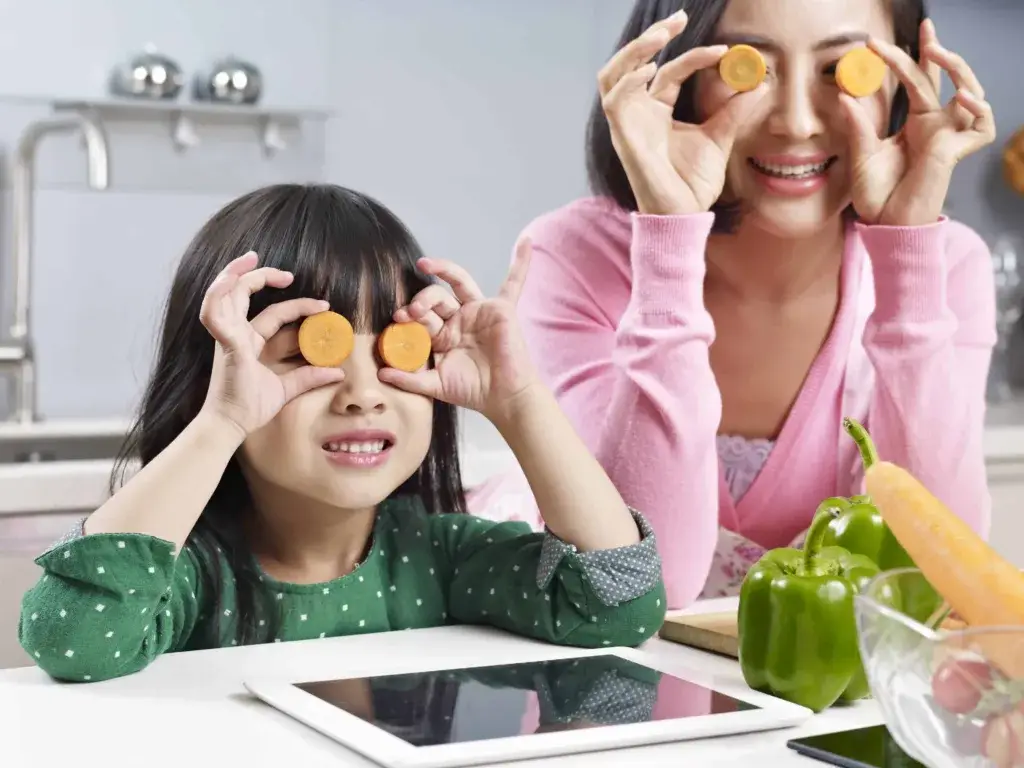They’re a notorious favorite of rabbits. They’re delicious in a stew. They’re iconic at Eastertime. And whether you love them, hate them, or simply eat them because they’re choke-full of vitamins and minerals, carrots are one of the most popular vegetables in America, coming in right after potatoes, tomatoes, and onions. When you were a kid, your parents might have told you that carrots help you see better, but were they just trying to convince you to eat more veggies? Are carrots good for your eyes?
Are Carrots Good for Your Eyes?
Good news! The answer is yes. Carrots are good for your eyes.
But let’s dig a little deeper.
The main reason that carrots are touted as a great vegetable for eye health is that they’re an excellent source of vitamin A, which does benefit the eyes. That is not a myth. They provide vitamin A through beta carotene, a carotenoid that the body converts into vitamin A.
What’s funny, however, is that carrots are certainly not the only vegetables that offer vitamin A. Leafy green vegetables like kale, spinach, and broccoli are also excellent sources of vitamin A, as are sweet potatoes, red bell peppers, tomatoes, pumpkins, and other winter and summer squash. Looking beyond vegetables, you can find vitamin A in mangos, cantaloupe, beef liver, fish oils, milk, and eggs.
Furthermore, vitamin A is not the only vitamin that’s important for good eye health. Other antioxidant vitamins, including vitamin C and vitamin E, play a critical role in eye health as well. And some vegetables, such as those leafy green veggies, contain more of all these vitamins than carrots.
Why Does Vitamin A Benefit the Eyes?
Vitamin A allows opsin proteins to form in “cone cells.” It also allows rhodopsin proteins to form in “rod cells.” You might remember from anatomy class that cones help us see in brighter light, and rods help us see in dimmer light. Because of the connection between vitamin A and seeing in low-light conditions, vitamin A deficiency can lead to night blindness, a condition in which people struggle to see in dark environments. In addition, vitamin A deficiency is correlated with the development of cataracts and macular degeneration, and it can cause corneal ulcers that, if left untreated, can actually lead to the cornea melting away.
It’s important to note, however, that vitamin A deficiency is very rare in the United States. So it’s very unlikely that you or someone you know struggles to see at night or is at risk of losing your cornea because you’re not eating enough carrots or other sources of vitamin A.
It’s also not the case that someone who eats more carrots will have super-vision. Vitamin A enables good eye health; it doesn’t continually improve your eye health.
The Bottom Line
While carrots can help you maintain good eye health due to their beta carotenes, which the body converts into vitamin A, they’re just one great source of vitamin A. So, if you’re more partial to kale or spinach, don’t feel like you must regularly eat carrots. In addition, don’t expect carrots to improve your vision or correct issues like nearsightedness or farsightedness. Instead, think of them as a tool to maintain good eye health, especially in regard to night vision and corneal health.
When was the last time you had your eyes checked? If you live in southwest Missouri, stop by Heffington’s. Since 1975, the Heffington family has assisted the Springfield community with top-quality eye care and affordable eyeglasses and contacts. To learn more about our products and services, please get in touch with us online, send an e-mail to asktheexperts@heffingtons.com, or give us a call at 417-869-3937 (Optiland location) or 417-882-3937 (House of Vision location).
P.S. If you liked this blog post, you might be interested in Nutrition for Eye Health as well.

